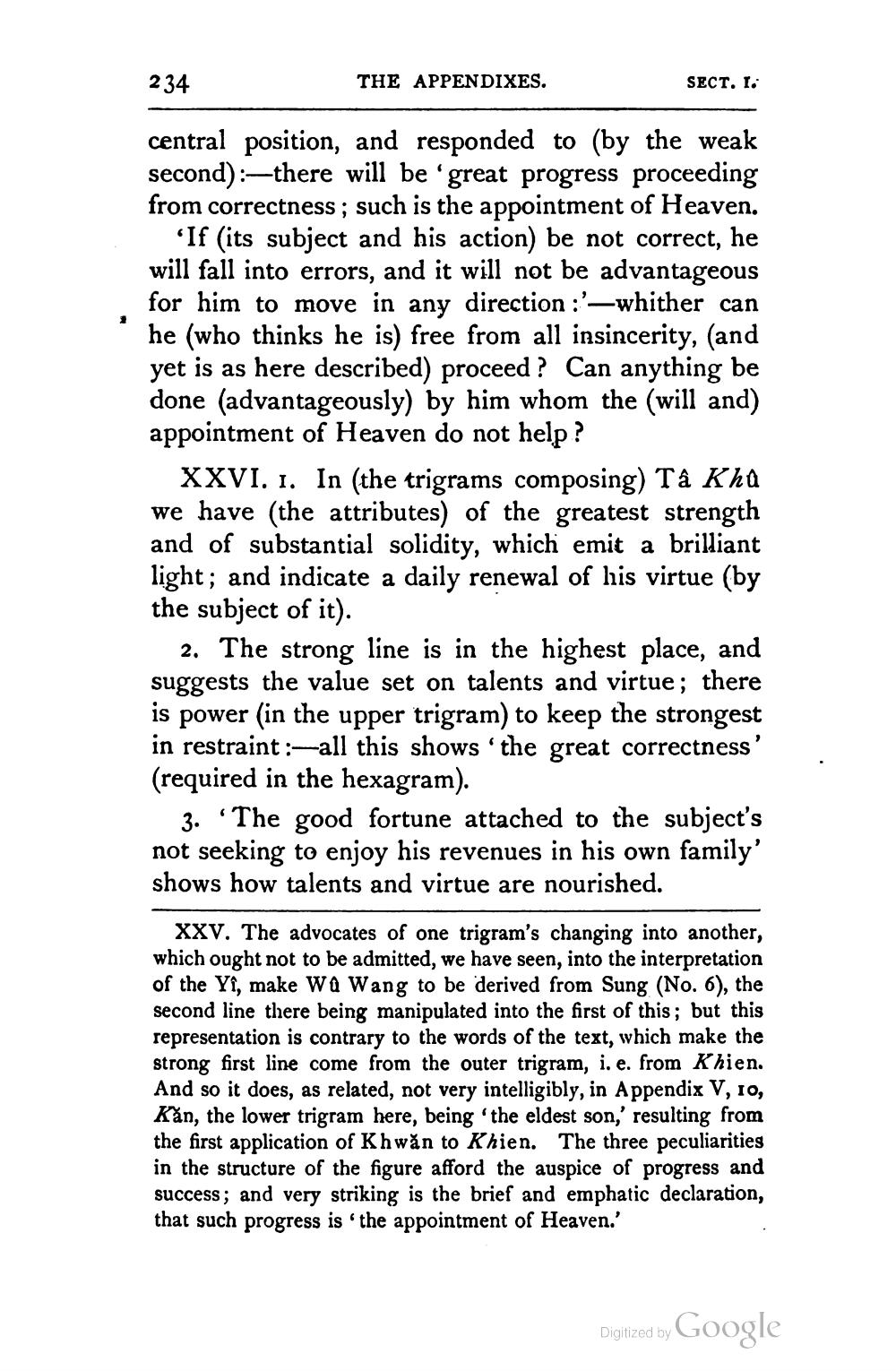________________
234
THE APPENDIXES.
SECT. I.
central position, and responded to (by the weak second) :—there will be great progress proceeding from correctness; such is the appointment of Heaven.
'If (its subject and his action) be not correct, he will fall into errors, and it will not be advantageous for him to move in any direction :'—whither can he (who thinks he is) free from all insincerity, (and yet is as here described) proceed? Can anything be done (advantageously) by him whom the (will and) appointment of Heaven do not help?
XXVI. 1. In (the trigrams composing) Tâ Kha we have (the attributes) of the greatest strength and of substantial solidity, which emit a brilliant light; and indicate a daily renewal of his virtue (by the subject of it).
2. The strong line is in the highest place, and suggests the value set on talents and virtue; there is power in the upper trigram) to keep the strongest in restraint:-all this shows the great correctness' (required in the hexagram).
3. “The good fortune attached to the subject's not seeking to enjoy his revenues in his own family' shows how talents and virtue are nourished.
XXV. The advocates of one trigram's changing into another, which ought not to be admitted, we have seen, into the interpretation of the Yî, make Wa Wang to be derived from Sung (No. 6), the second line there being manipulated into the first of this, but this representation is contrary to the words of the text, which make the strong first line come from the outer trigram, i. e. from Khien. And so it does, as related, not very intelligibly, in Appendix V, 10, Kán, the lower trigram here, being the eldest son,' resulting from the first application of Khwăn to Khien. The three peculiarities in the structure of the figure afford the auspice of progress and success; and very striking is the brief and emphatic declaration, that such progress is the appointment of Heaven.'
Digitized by Google




